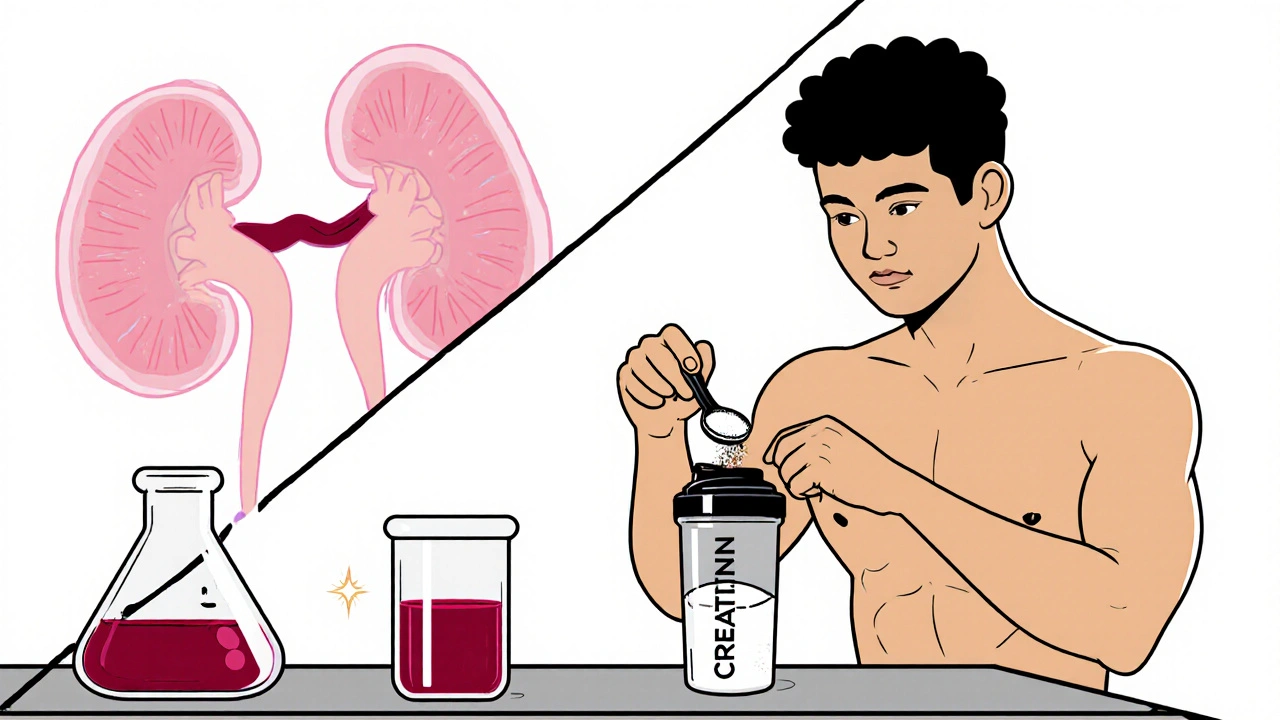
Creatine Supplement & Kidney Medications: How to Monitor Renal Function
Learn how creatine affects kidney labs, which medications matter, and the best monitoring steps to keep renal function safe while using the supplement.
When your doctor orders a blood test to check your serum creatinine, a waste product from muscle breakdown that filters through the kidneys. It's also known as blood creatinine, and it's one of the most common ways to see how well your kidneys are working. If your kidneys aren’t filtering properly, creatinine builds up in your blood. That’s why this number shows up on almost every basic lab panel — it’s simple, reliable, and tells doctors a lot fast.
But serum creatinine doesn’t tell the whole story. It’s usually paired with eGFR, estimated glomerular filtration rate, a calculation that adjusts creatinine for age, sex, and race to give a clearer picture of kidney function. A normal serum creatinine level is around 0.6 to 1.2 mg/dL for adults, but it varies by muscle mass. A bodybuilder might have higher levels without any kidney problem, while an older, thinner person could have normal creatinine but still have early kidney damage. That’s why eGFR matters just as much — and why doctors don’t rely on creatinine alone.
High serum creatinine can mean kidney disease, dehydration, or even a recent intense workout. Low levels aren’t usually a concern unless you’re losing muscle from illness or malnutrition. Certain medications — like ACE inhibitors, blood pressure drugs that affect kidney filtration — can temporarily raise creatinine, which isn’t always bad. In fact, it can mean the drug is working. But if levels keep climbing, it’s a red flag. Conditions like diabetes, high blood pressure, or chronic kidney disease often show up first through changes in this number.
You’ll find posts here that dig into how creatinine ties into real-world health decisions: how it’s used to adjust doses of drugs like metformin or contrast dye, why it’s tracked in people with heart failure or diabetes, and what happens when levels spike after surgery or infection. Some articles compare treatments for kidney-related conditions, while others explain how to interpret your own lab results. There’s no fluff — just clear, practical info on what serum creatinine means for your body, your meds, and your next doctor’s visit.

Learn how creatine affects kidney labs, which medications matter, and the best monitoring steps to keep renal function safe while using the supplement.